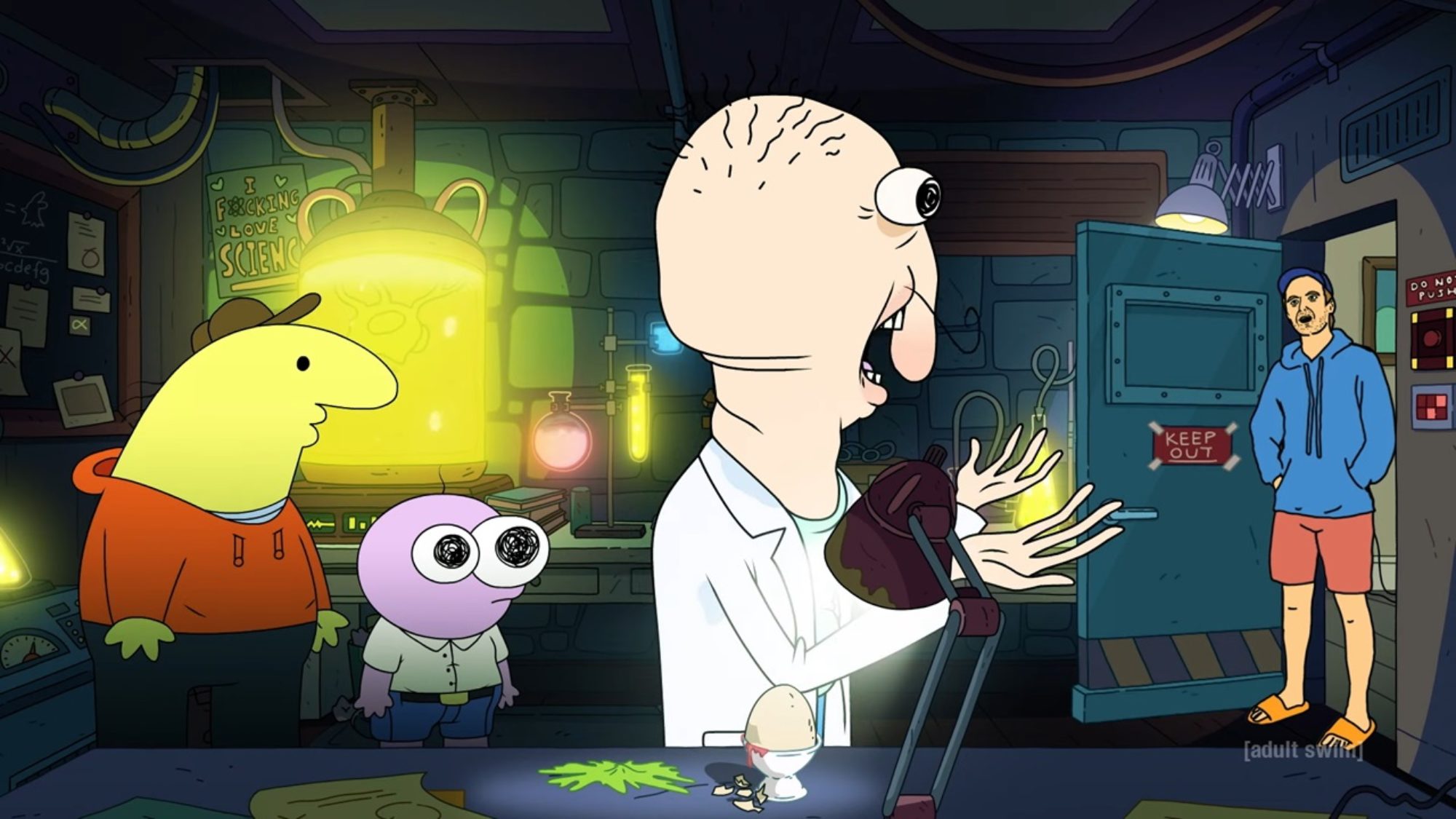Ever found yourself secretly annoyed when your friends flash those pearly whites at you? Yeah, you're not alone. The phrase "I hate smiling friends" might sound a bit extreme, but it taps into something a lot of people feel on the inside. It’s like this unspoken tension where you're expected to be happy all the time, but sometimes, you just ain't feeling it. And guess what? That's okay.
You see, life isn’t all rainbows and butterflies. Sometimes, it’s messy, confusing, and honestly, kinda rough. And when your friends are constantly smiling like they’ve got the world figured out, it can feel isolating. Like, "Dude, I’m over here drowning in my own thoughts, and you’re over there grinning like there’s no tomorrow." It’s not about hating them—it’s about understanding why their constant cheeriness might rub you the wrong way.
This article dives deep into why some people feel this way, the science behind emotions, and how to navigate these tricky feelings without burning bridges. So, if you’ve ever thought, “I hate smiling friends,” don’t worry. We’re about to unpack this whole thing together.
- Ari Kytsya Onlyfans A Comprehensive Look Into Her Career And Success
- Buford Pusser The Legendary Sheriff Who Changed American Law Enforcement
Here’s what we’ll cover:
- Why Smiling Friends Can Be Irritating
- The Science Behind Emotions and How It Affects Us
- Dealing with Toxic Positivity
- How to Communicate Your Feelings Without Ruining Relationships
- And More!
Understanding the Phrase: I Hate Smiling Friends
Let’s start with the basics. When someone says, “I hate smiling friends,” they’re not literally saying they hate their friends. It’s more about the vibe their friends are giving off. Picture this: you’re having a rough day—your boss is breathing down your neck, your car broke down, and you spilled coffee on your favorite shirt. You walk into a room full of friends laughing and smiling like nothing’s wrong. How does that make you feel? Probably like you’re the odd one out.
This phrase taps into a deeper issue: the pressure to be happy all the time. In today’s world, happiness is often seen as the ultimate goal. Social media doesn’t help either. Every scroll feels like a highlight reel of everyone else’s perfect lives. But here’s the thing—nobody’s life is perfect. And when your friends are constantly smiling, it can feel like they’re living in a different reality than you.
Why Do Smiling Friends Irritate Us?
There’s a psychological reason behind why some people get irritated by their smiling friends. It’s not about the smile itself—it’s about what the smile represents. For many, a constant smile can come across as inauthentic or dismissive of their struggles. Like, “If you’re happy, then I must be the problem.”
1. The Pressure to Be Happy
In a world obsessed with positivity, the pressure to be happy can be overwhelming. When your friends are always smiling, it can feel like they’re holding you to an impossible standard. Like, “If they can do it, why can’t I?” But here’s the thing: happiness isn’t a constant state. It’s okay to feel sad, frustrated, or even angry sometimes. Emotions are part of being human.
2. The Fear of Judgment
Another reason smiling friends can irritate us is the fear of judgment. If your friends are always smiling, it can make you feel like they don’t understand or care about your struggles. Like, “Why aren’t they taking my problems seriously?” This fear can create a wedge between you and your friends, making it harder to open up and share your feelings.
The Science Behind Emotions
Now, let’s talk science. Emotions are complex things. They’re influenced by a bunch of factors, including biology, environment, and personal experiences. When you see someone smiling, your brain automatically tries to interpret what that smile means. Is it genuine? Is it forced? And how does it relate to your own emotional state?
1. Mirror Neurons
Mirror neurons are brain cells that fire when we see someone else performing an action. So, when you see your friend smiling, your mirror neurons kick in, and you might feel the urge to smile back. But if you’re not in the mood to smile, this can create cognitive dissonance—a fancy term for when your thoughts and feelings don’t align. And that’s where the irritation comes from.
2. Emotional Contagion
Emotional contagion is the idea that emotions can spread from person to person, much like a virus. When your friends are smiling, their happiness can rub off on you—or it can make you feel worse if you’re already in a bad mood. It’s like being stuck in a room with someone who’s laughing uncontrollably. At first, it’s funny. But after a while, it starts to feel a little unsettling.
Dealing with Toxic Positivity
Toxic positivity is a term used to describe the excessive and ineffective overgeneralization of a happy, optimistic state across all situations. It’s when people insist on staying positive, even in the face of real struggles. And let’s be real—sometimes, positivity just doesn’t cut it. If your friends are constantly smiling and telling you to “just think positive,” it can feel invalidating.
Here’s the thing: toxic positivity isn’t helpful. It can make you feel like your emotions don’t matter. And that’s not okay. Your feelings are valid, no matter what they are. It’s okay to feel sad, angry, or frustrated. And it’s okay to tell your friends when their constant smiling is making you feel worse.
How to Communicate Your Feelings
Now, let’s talk about communication. If your friends’ smiling is getting on your nerves, it’s important to address it in a healthy way. Here are a few tips:
- Be Honest: Tell your friends how you’re feeling. Use “I” statements like, “I feel like your constant smiling makes it harder for me to open up.”
- Set Boundaries: It’s okay to set boundaries. If you need space or time to process your emotions, let your friends know.
- Find Common Ground: Instead of focusing on the negatives, try to find common ground. Maybe your friends are smiling because they want to make you feel better. Let them know what you need from them instead.
Understanding Different Emotional Styles
Not everyone expresses emotions the same way. Some people are naturally more expressive, while others keep things bottled up. This difference in emotional styles can lead to misunderstandings. For example, if you’re someone who prefers to keep things private, your friends’ constant smiling might feel like they’re not taking you seriously. But if you’re more open about your emotions, you might appreciate their positivity.
1. Extroverts vs. Introverts
Extroverts tend to thrive in social situations and express their emotions more openly. Introverts, on the other hand, often need time alone to recharge and process their feelings. If you’re an introvert surrounded by extroverts, their constant smiling might feel overwhelming. It’s important to recognize these differences and find ways to connect that work for both parties.
2. Cultural Differences
Culture also plays a big role in how we express emotions. In some cultures, smiling is seen as a sign of politeness, even if the person isn’t actually happy. In others, smiling too much can be seen as insincere. Understanding these cultural differences can help you better understand your friends’ behavior.
Building Healthy Relationships
At the end of the day, relationships are all about balance. It’s important to find a middle ground where both parties feel heard and understood. If your friends’ smiling is getting on your nerves, it’s okay to address it. But it’s also important to recognize that their smiling might not be about you—it’s just how they express themselves.
1. Practice Empathy
Empathy is the ability to understand and share the feelings of others. When your friends are smiling, try to put yourself in their shoes. Maybe they’re genuinely happy, or maybe they’re trying to make you feel better. Either way, empathy can help you see things from their perspective.
2. Focus on Connection
Instead of focusing on the negatives, try to focus on building a deeper connection with your friends. Ask them how they’re really feeling, and share your own struggles. Sometimes, all it takes is a little vulnerability to break down those walls.
Conclusion
So, there you have it. The phrase “I hate smiling friends” might sound harsh, but it taps into a real issue that a lot of people face. The pressure to be happy all the time, the fear of judgment, and the differences in emotional styles can all contribute to this feeling. But here’s the good news: it’s possible to navigate these tricky emotions without ruining your relationships.
The key is communication, empathy, and understanding. Talk to your friends about how you’re feeling, and be open to hearing their side of things. And remember, it’s okay to feel sad, angry, or frustrated sometimes. Emotions are part of being human, and there’s no one-size-fits-all approach to happiness.
So, the next time you catch yourself thinking, “I hate smiling friends,” take a step back and ask yourself why. Is it about the smile, or is it about something deeper? And most importantly, don’t be afraid to reach out and talk about it. Your relationships are worth it.
Now, it’s your turn. Do you relate to this feeling? Have you ever struggled with toxic positivity? Let us know in the comments below. And if you found this article helpful, don’t forget to share it with your friends. Who knows? It might just start a conversation that needs to happen.
- Hd Sexy Videos A Comprehensive Guide To Highdefinition Entertainment
- Vegamovies Archive Your Ultimate Guide To Streaming Movies Online


